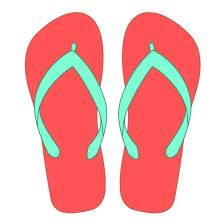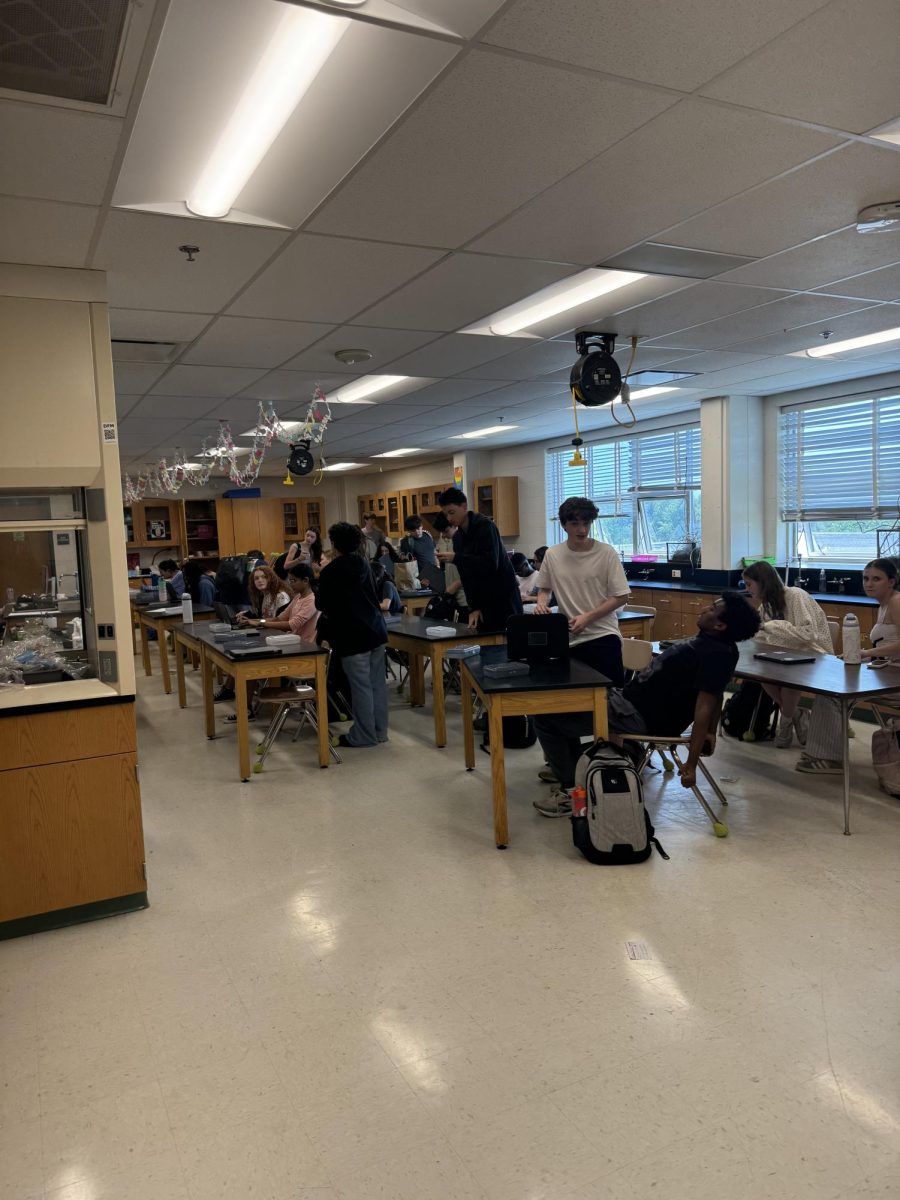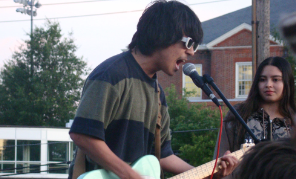Moving into the WJ community from Annapolis in 1963, class of 1966 graduate Tom Herron became a Wildcat just before the start of his freshman year. Herron did not know anyone in the mix of urban Bethesda and rural Rockville kids, as almost everyone else attended elementary and middle school in the area. His parents’ search for a strong academic school brought Herron to the area, and between working on the school newspaper, performing with his high school band, The Karavans, and meeting a variety of new people, Herron fully enjoyed himself in his new community.
“I have nothing bad to say about WJ, I really enjoyed my time there,” said Herron.
While WJ has remained unchanged in many ways such as its academic strength, stark differences exist between the experiences of a 1966 senior and a 2016 senior, starting with the first day of school.
“On my first day [of school], I got on a bus, arrived at school, and cows were all over the place. There was a cow pasture behind the school! Now, there are new buildings housing some of the largest corporations in the world,” said Herron.
As he began to form new relationships with WJ students, Herron also formed something else: his band, The Karavans. Started by himself, and friends down the street and fellow WJ Classmates Joe Neurauter, Bruce Watkins, The Karavans was becoming a talented band by 1964.
“Back then, everybody and their brother wanted to have a band,” said Herron. “We were so loud that whenever we practiced, my father would leave the house until we were done.”
In 1964, the Beatles became extremely popular in the US, and completely reshaped the music that The Karavans played.
“We went from the music of the Beach Boys to the music of the British Invasion. To keep up, we made an agreement that if a new song came out, we had to know how to play it within two weeks. This required a lot of hard work, because the Beatles were using chords and instruments that people had never heard before,” said Herron.
The band’s hard work paid off. They changed their name to The End and would go to the Wheaton Community Center and be hired to play at parties and dances all over the area, and became extremely popular by 1965. They eventually entered a local “Battle of the Bands,” taking second place due to their relatively inexpensive equipment compared to the winners. After the tournament however, a man approached the band and introduced himself as Kirby Scott, the host of WDCA Channel 20’s show “Kirby Scott’s WingDing (a local version of Dick Clark’s “American Bandstand”),” and invited them to play on the show.
“We were the first band to ever play on live television in DC,” said Herron. “The End was a great experience because I got paid for doing something I loved. I was making money having fun playing music, while other guys were flipping burgers.”
When The End performed on Wingdings, half of the student body tuned in to watch them, making it one of Herron’s top high school experiences. His other favorite memory came in senior year, when he performed in front of his fellow students in the senior class play.
“I had never been interested in acting, but I became one of the leads in my senior class play, Anastasia. I got to work with all of these cool people, and [the play] was definitely the highlight of my time in high school,” said Herron.
In addition to The Caravans, The End and Anastasia, Herron was a member of the Pitch, which he credits for developing the writing skills necessary to securing a number of jobs over his career. His time on the paper also encouraged him to continue journalism in college, at Lycoming College’s The Bell.
While WJ brought new friends and new experiences for Herron, not all of his memories of WJ were positive. Three months after he started school, President John F. Kennedy was assassinated.
“I was in the finishing room of shop class, varnishing a lamp I had made, and I heard a voice over the loudspeaker before they put the radio on, saying President Kennedy had been shot and seriously injured. Later our principal came on and said President Kennedy had died. I can still remember the smells from that moment and hear the sounds of it,” said Herron.
Herron remembers Kennedy’s assassination as a turning point for the nation- with everything going so well in the “American Century,” nobody expected a tragedy of this magnitude. The assassination deeply moved Heron and his family, who went to see his coffin and watch world leaders come and pay their respects, then stood on a bridge and watched it go past them towards Arlington Cemetery.
JFK’s assassination was important to developing Herron’s strong sense of patriotism. Herron’s father was a World War II hero, who flew “over the hump” (from India to China over the Himalayas), and patriotism has always been an important part of his life.
“My father taught me about patriotism, and about what makes America different from the rest of the world,” said Herron.
His patriotic spirit led Herron on trips to Monticello, Mount Vernon, Capitol Hill and other locations important to US political history. Additionally, it influenced his decision to major in political science in college (along with a WJ guidance counselor who claimed he could not be an architect due to his lack of skill in math).
Herron graduated with around 700 classmates, a group so large that graduation was held at College Park. After a conflict arose in Bobby Kennedy’s schedule, Teddy Kennedy came to speak to the graduating seniors. Thinking about his time at WJ, Herron has important advice for the school’s current and future seniors.
“I thought I had fallen in love with a girl when I was a sophomore, this girl Lynda Elmer. She became part of the Pitch, and I dated her all the way through my freshman year in college,” said Herron. “I think [students at WJ] should date as many people as they can [while in high school]. [Dating] is an opportunity to meet people, and by dating one person throughout high school, I took myself out of circulation and missed out on getting to know other people.”
“Another thing is that students need to learn to be disciplined while in high school. It’s easy to think that things are always going to be comfortable, but discipline is the key to success in life,” said Herron. “[When I went to Lycoming] I had to learn self-discipline and I had to learn it quickly. There were no parents around pushing me to do my homework, or to check it before school.”
This lesson in self-discipline arrived in the form of an English professor, who gave Herron a B+ for the semester because while he was good at writing, wrote one of his essays the night before and never bothered to review it for errors.
Herron had always wanted a small college experience and immediately knew Lycoming College was where he wanted to be as soon as he set foot on the quad. Over his four years there, he became heavily involved in the newspaper and student government, becoming the editor of the paper and SGA president.
“My college experience was nothing short of amazing – from classroom to coffee house, from advanced learning experiences to extracurricular activities and social life,” said Herron. “I attended college at the height of the Vietnam War and the controversy surrounding it, including demonstrations on the smallest of campuses. Editing The Bell and then presiding over the Student Government Association, especially at that time in history, was an invigorating and often emotional experience. In the end, however, it is the lifelong friends I made there that represent the best part of Lycoming College.”
Some of Herron’s proudest achievements at Lycoming involve working on The Bell. Named a managing editor in 1967, Herron focused on investigative reporting and began “writing like a fiend.” In the spring of 1968, he was named editor of the paper, and decided that he wanted to overhaul The Bell and make it one of the top rated papers in America. He made a deal with the school that once the paper became a success, he would receive $500 a month so that he could focus his attention on the paper rather than split it with an outside job. Thanks to Herron’s leadership, The Bell’s overhaul was successful and as he promised, it became one of the top-rated papers in the US and brought in enough advertising to become entirely self-sufficient. He is also proud of the blistering editorials he wrote criticizing Lycoming’s interim president during Vietnam. Unfortunately, Herron resigned from the paper when he decided to run for SGA president, but is glad to have the experiences from both the paper and student government.
After graduating from Lycoming, Herron’s extracurricular activities were highly influential to his careers in marketing, advertising and public relations. His career path has spanned all three activities and incorporated both his skills as a strong writer and his degree in political science, taking him from companies such as the Brick Institute of America, to partnering with golf legend Gary Player to form a golf travel agency, to founding “Up with America,” a grassroots nonprofit.
Herron is looking forward to sharing his experiences and listening to those of his classmates at the reunion this year.
“I’ve already reconnected with at least a dozen people, and I’ve gotten to know them to the point that I sort of regret losing 50 years,” said Herron.
Herron’s final thoughts on his experiences over the past 50 years and last words of advice for seniors:
“I was blessed to be born in America to a loving, honorable family rooted in faith and morality; blessed to attend one of the nation’s finest high schools; blessed to attend a top-ranked liberal arts college, and blessed with friends and family that have made my career and life rich and full! If I have one recommendation for WJ students today it would be to take advantage of hand-held technology to keep a daily record or diary of your life, starting now. Sooner than you can possibly imagine, looking back with pride will help fulfill your senior years and enrich your children and grandchildren.”













